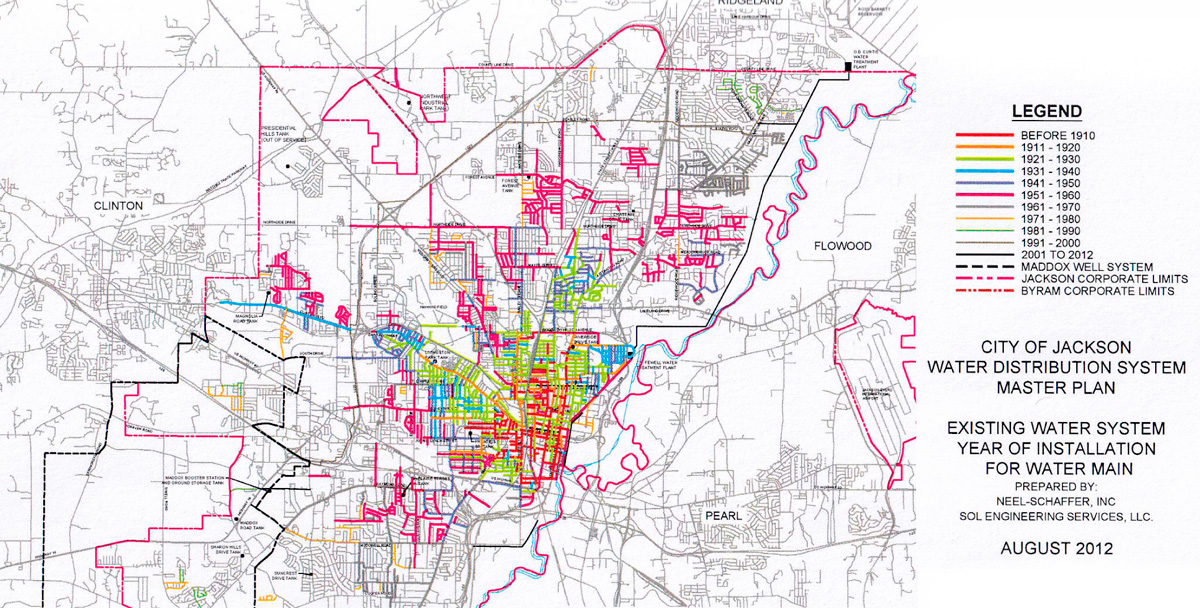Although I was not born in the Hospitality State, after four years of formative experiences as a college student and registered voter in the capital city, part of my identity is now undeniably Mississippian.
As an ecologically oriented individual, environmental justice has always been an area of curiosity and passion for me, and Jackson, Miss., is a pronounced example of environmental infrastructure gone wrong. This injustice has notably come into fruition as a lack of access to the most basic foundational component of all life on Earth: water!
Admittedly, attending a small, private college in the city provided me and my peers with considerable supplemental relief, but most Jacksonians have been left out to dry. Anecdotally, clean water became so scarce that a severe ice storm in February 2021 and a subsequent shutdown of the local water plant resulted in Millsaps College throwing in the towel and canceling the spring semester final exams altogether. This silver lining for a limited few Millsapians sheds light on how dire the situation became for the greater Jackson community, which had substantially less support.
Ensure Access to Clean Water
If we look at history, Jackson’s water crisis is a clear result of a concerted backlash against the racial integration of schools. White flight left Jackson unequipped with the tax base necessary to remedy its water woes before they became existential. Historically, supermajority conservative delegations, which a Republican governor enables, dominate both houses of the Mississippi legislature.
Though Mississippi is known as the “Blackest state” per capita and Jackson the “Blackest city,” these aforementioned elected officials are overwhelmingly white. Of course, Mississippi leaders’ traditionalistic, conservative political culture has bred a sense of overwhelming apprehension for federal intervention on any issue until a case of last resort arises.

During the height of the water crisis in 2022, the City of Jackson and the State of Mississippi petitioned for declarations of emergency. In August 2022, President Joe Biden approved the Mississippi Emergency Declaration, providing additional federal funding and resources to support recovery efforts. Despite the efforts of a consortium of agencies (MEMA, FEMA and EPA), the city has continued to rack up penalties for its noncompliance with the Safe Drinking Water Act.
Jackson is slowly making changes, but this crisis put a spotlight on the infrastructure and environmental inequities that affect communities across the United States. To ensure access to clean water, we need to invest in infrastructure maintenance and repairs.
My environmental science professor, Dr. Stan Gailiki, provided me with some important geoscientific, empirical context on this issue. He explained that many cities across the nation use surface water as their primary municipal source, as does Jackson. Our issue is not isolated weather events, but an infrastructural failure.
As Dr. Gailiki put it, “This is so much more than a geological problem.” I’d go a step further: This dilemma is born from political failings that we must look at in the mirror and address with the perspective of history.
Americans often take infrastructure for granted and are not particularly interested in the topic until things go terribly wrong in their own backyard. Without a doubt, environmental justice means something different to everyone relative to what ecological disruption may plague their communities. Seeing a community unify itself to hydrate its inhabitants amid the worst of circumstances is encouraging. This phenomenon of shared experiences promotes cohesion, which is one of the most powerful forces for bringing about real change.
If environmental injustice encumbers your community, or you want to advocate on behalf of those areas most vulnerable, I urge you to encourage your elected officials to vote yes on Senate Bill 2148 and House Bill 3756, bills that will invest federal funds into climate infrastructure and natural-disaster-resiliency planning. At the end of the day, if you are truly thirsty for change, we cannot wait to seek retribution until circumstances have boiled over.
This MFP Voices essay does not necessarily represent the views of the Mississippi Journalism and Education Group, the Mississippi Free Press, its staff or board members. To submit an opinion for the MFP Voices section, send up to 1,200 words and sources fact-checking the included information to azia@mississippifreepress.org. We welcome a wide variety of viewpoints.






